Chia seeds, derived from the Salvia hispanica plant, are small but mighty seeds that have gained popularity among health enthusiasts. These tiny seeds are packed with nutrients and serve as an excellent source of omega-3 fatty acids, essential for maintaining optimal health. This article delves into the numerous nutritional benefits of chia seeds, particularly their role as a vital plant-based source of omega-3 fatty acids.
Chia seeds are tiny, black or white seeds that are rich in various nutrients. They are renowned for their versatility, making them a popular addition to various diets, including vegan and vegetarian lifestyles. These seeds are often praised for their ability to absorb water, swelling up to ten times their size, which can enhance hydration and satiety.
Omega-3 fatty acids are crucial for heart health, brain function, and reducing inflammation. They are known to lower the risk of chronic diseases, improve cognitive function, and support mental health. The body cannot produce omega-3s on its own, making it vital to obtain them through diet.
Chia seeds offer a unique plant-based alternative to traditional omega-3 sources like fish and flaxseeds. Unlike fish, which can contain harmful toxins, chia seeds provide a clean source of omega-3s without environmental concerns. They contain alpha-linolenic acid (ALA), a type of omega-3 that is beneficial for health.
In addition to omega-3 fatty acids, chia seeds are rich in:
- Fiber: Promotes digestive health.
- Protein: Essential for muscle repair and growth.
- Antioxidants: Help combat oxidative stress.
- Minerals: Such as calcium, magnesium, and phosphorus.
These nutrients contribute to the classification of chia seeds as a superfood.
Incorporating chia seeds into your meals is easy. Here are some practical ways:
- Add them to smoothies for a nutritional boost.
- Mix them into oatmeal for added texture and fiber.
- Use them in baked goods as a healthy ingredient.
- Make chia pudding by soaking them in milk or a milk alternative.
Regular consumption of chia seeds can lead to various health benefits, including:
- Improved heart health due to their omega-3 content.
- Enhanced digestion from their high fiber content.
- Better weight management as they promote fullness.
While chia seeds are generally safe, some individuals may experience digestive issues or allergic reactions. It is essential to start with small amounts and gradually increase intake to avoid discomfort.
The high fiber content in chia seeds can promote a feeling of fullness, helping to regulate appetite and support weight loss efforts. Their ability to absorb water also aids in hydration, which is crucial for effective metabolism.
Absolutely! Chia seeds are an excellent source of omega-3 fatty acids for those following vegan or vegetarian diets. They provide essential nutrients that may be lacking in plant-based eating plans, making them a valuable addition to any diet.
When looking for high-quality chia seeds, consider purchasing from reputable brands or local health stores. Organic options are often recommended to ensure you receive the best product with maximum health benefits.

What Are Chia Seeds?
Chia seeds are tiny, yet powerful seeds that come from the Salvia hispanica plant, a member of the mint family native to Central America. These seeds have been a staple in ancient diets and are now celebrated for their remarkable health benefits and versatility in modern nutrition. What makes chia seeds particularly fascinating is their ability to absorb water, swelling up to 10-12 times their original size, which contributes to their unique texture and nutritional profile.
Rich in essential nutrients, chia seeds are often classified as a superfood. They are packed with omega-3 fatty acids, fiber, protein, and various minerals, making them a valuable addition to any diet. In fact, just two tablespoons of chia seeds contain approximately 5 grams of protein, 10 grams of fiber, and a significant amount of calcium, magnesium, and phosphorus.
One of the key reasons why chia seeds have gained popularity is their high content of alpha-linolenic acid (ALA), a type of omega-3 fatty acid that is essential for heart health. Unlike many other sources of omega-3s, such as fish, chia seeds provide a plant-based alternative that is suitable for vegans and vegetarians. This makes them an excellent choice for individuals looking to increase their intake of healthy fats without consuming animal products.
In addition to their omega-3 content, chia seeds are also an excellent source of dietary fiber. The soluble fiber in chia seeds can help regulate digestion and promote feelings of fullness, making them a popular choice for those seeking to manage their weight. The seeds also contain antioxidants, which help protect the body from oxidative stress and inflammation.
Chia seeds can be easily incorporated into a variety of dishes. They can be sprinkled on top of salads, blended into smoothies, or used as a thickening agent in puddings and baked goods. Their neutral flavor and gel-like consistency when soaked in liquid make them a versatile ingredient in both sweet and savory recipes.
Furthermore, chia seeds are incredibly easy to prepare. They can be consumed raw or soaked in liquid for a few hours to create a pudding-like texture. This adaptability allows for creative culinary uses, from breakfast bowls to energy bars, making them an ideal choice for busy individuals looking to enhance their diets.
Despite their numerous benefits, it is important to consume chia seeds in moderation. While they are generally safe for most people, excessive intake can lead to digestive discomfort due to their high fiber content. It is advisable to gradually introduce chia seeds into your diet and ensure adequate hydration, as they absorb a significant amount of water.
In summary, chia seeds are a nutrient-dense superfood that provides an array of health benefits. Their high omega-3 fatty acid content, combined with their fiber and protein, makes them a valuable addition to any diet. With their versatility and ease of use, chia seeds can be seamlessly integrated into a variety of meals, contributing to overall health and wellness.
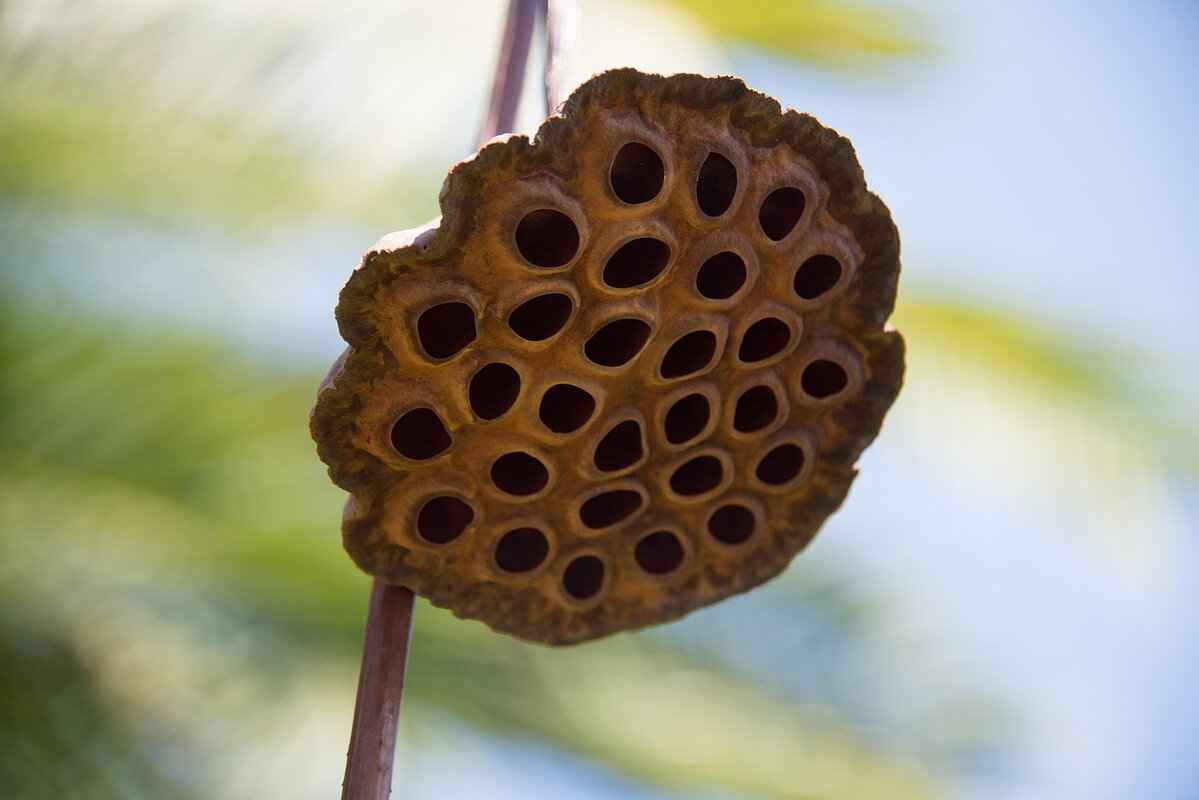
Why Are Omega-3 Fatty Acids Important?
Omega-3 fatty acids are a type of polyunsaturated fat that are essential for the human body. These fats are not produced by the body on their own, which is why it is crucial to obtain them through diet. Their importance cannot be overstated, as they play a significant role in various bodily functions.
- Heart Health: Omega-3 fatty acids are known to lower triglyceride levels, reduce blood pressure, and decrease the risk of heart disease. Regular consumption can lead to improved cardiovascular health.
- Brain Function: These fatty acids are vital for brain health, supporting cognitive functions such as memory and learning. They are also linked to a reduced risk of neurodegenerative diseases.
- Reducing Inflammation: Omega-3s have anti-inflammatory properties that can help alleviate symptoms of chronic conditions such as arthritis and inflammatory bowel disease.
- Mood Regulation: Some studies suggest that omega-3 fatty acids can help reduce symptoms of depression and anxiety, promoting better mental health.
Incorporating omega-3 fatty acids into your diet can lead to a multitude of health benefits. They contribute to healthy skin by maintaining moisture and preventing dryness. Additionally, omega-3s are essential for eye health, helping to prevent age-related macular degeneration.
While fatty fish like salmon and mackerel are well-known sources of omega-3s, there are also plant-based options available. Chia seeds, flaxseeds, and walnuts are excellent alternatives for those following a vegetarian or vegan diet. These sources provide alpha-linolenic acid (ALA), a type of omega-3 that the body can convert to EPA and DHA, albeit in smaller amounts.
The recommended intake of omega-3 fatty acids varies based on age, gender, and health conditions. Generally, adults should aim for at least 250-500 mg of combined EPA and DHA per day. It’s advisable to consult with a healthcare provider for personalized recommendations.
While omega-3 fatty acids are generally safe for most individuals, excessive intake can lead to potential side effects. These may include an increased risk of bleeding, especially for those on blood-thinning medications. It’s important to consume omega-3s in moderation and seek professional advice if you have underlying health concerns.
Research indicates that omega-3 fatty acids may enhance athletic performance by improving muscle recovery and reducing exercise-induced inflammation. Athletes may benefit from incorporating omega-3-rich foods or supplements into their diets to support endurance and overall performance.
Omega-3 fatty acids are crucial during pregnancy, as they contribute to fetal brain and eye development. Pregnant women are encouraged to include omega-3 sources in their diets to support the health of both mother and child.
In summary, omega-3 fatty acids are essential for maintaining heart health, supporting brain function, and reducing inflammation. Their numerous benefits make them a vital component of a balanced diet, highlighting the importance of incorporating these essential fats into your daily meals.
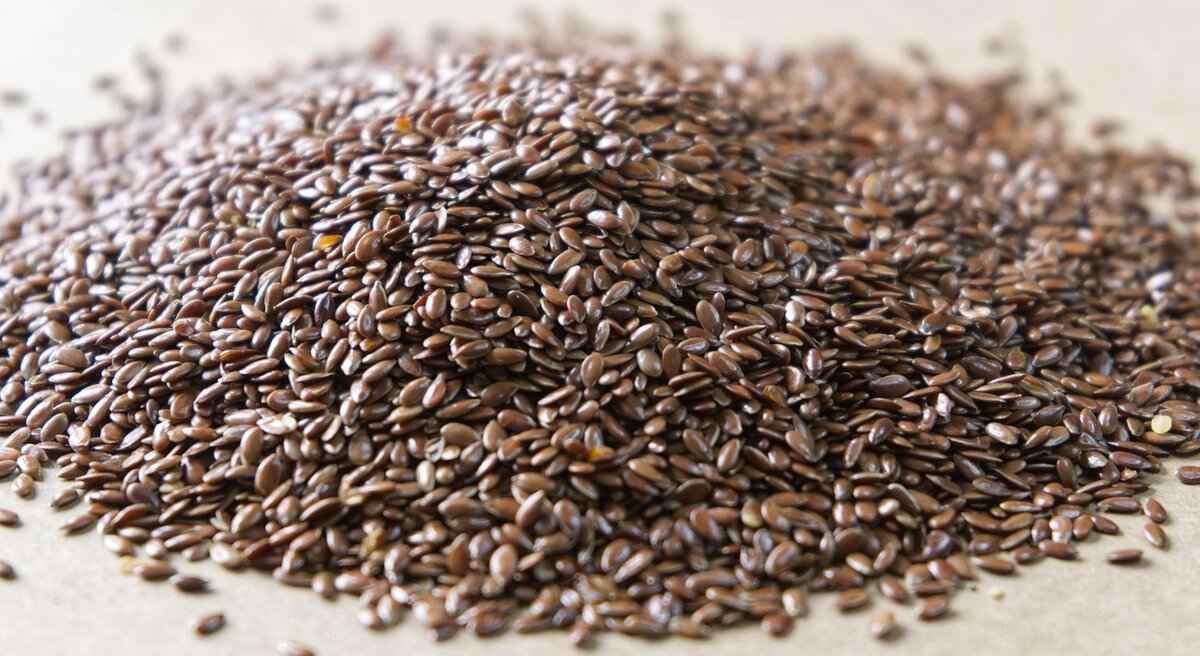
How Do Chia Seeds Compare to Other Omega-3 Sources?
Chia seeds have gained recognition as a powerful source of omega-3 fatty acids, particularly for those seeking plant-based alternatives. Unlike traditional sources of omega-3s such as fish and flaxseeds, chia seeds offer a unique profile that not only meets dietary needs but also addresses environmental concerns.
Chia seeds are derived from the Salvia hispanica plant and are incredibly versatile. They are an excellent source of alpha-linolenic acid (ALA), a type of omega-3 fatty acid that is essential for human health. In comparison to fish, which are known for their omega-3 content, chia seeds provide a sustainable option for those who follow vegetarian or vegan diets.
Omega-3 fatty acids are critical for maintaining overall health. They play a vital role in heart health, support brain function, and help reduce inflammation in the body. Unlike fish, which may contain pollutants and heavy metals, chia seeds offer a clean source of omega-3s, making them a safer option for regular consumption.
| Source | Omega-3 Content (per 100g) | Other Nutrients |
|---|---|---|
| Chia Seeds | 17g | Fiber, Protein, Antioxidants, Calcium |
| Flaxseeds | 22g | Fiber, Lignans, Magnesium |
| Salmon | 2.3g | Protein, Vitamin D, Selenium |
One of the most significant advantages of chia seeds over fish is the environmental impact. Overfishing has led to the depletion of fish populations, raising concerns about sustainability. In contrast, chia seeds are cultivated with minimal environmental impact, making them a responsible choice for eco-conscious consumers.
- Add to smoothies for a nutrient boost.
- Mix into oatmeal or yogurt for added texture.
- Use as an egg substitute in baking.
- Sprinkle on salads or soups for extra crunch.
In conclusion, chia seeds provide a remarkable plant-based alternative to traditional omega-3 sources like fish and flaxseeds. With their rich nutrient profile, sustainability, and versatility, they are an excellent addition to any diet. Embracing chia seeds not only supports personal health but also contributes to a healthier planet.

What Nutrients Are Found in Chia Seeds?
Chia seeds are often hailed as a superfood due to their impressive nutritional profile. While they are widely recognized for their rich content of omega-3 fatty acids, their benefits extend far beyond this essential fat. In this section, we will delve into the various nutrients found in chia seeds and how they contribute to overall health.
- Omega-3 Fatty Acids: Chia seeds are one of the best plant-based sources of omega-3 fatty acids, specifically alpha-linolenic acid (ALA). These healthy fats are crucial for maintaining heart health, reducing inflammation, and supporting brain function.
- Dietary Fiber: With approximately 11 grams of fiber per ounce, chia seeds are an excellent source of dietary fiber. This high fiber content aids in digestion, helps regulate blood sugar levels, and promotes a feeling of fullness, which can be beneficial for weight management.
- Protein: Chia seeds contain about 4 grams of protein per ounce, making them a valuable plant-based protein source. Protein is essential for muscle repair, immune function, and hormone production.
- Antioxidants: Rich in antioxidants, chia seeds help combat oxidative stress and protect the body from free radical damage. These antioxidants can contribute to overall health and may reduce the risk of chronic diseases.
- Essential Minerals: Chia seeds are packed with vital minerals including calcium, magnesium, phosphorus, and manganese. Calcium supports bone health, while magnesium plays a role in muscle function and energy production. Phosphorus is essential for healthy bones and teeth, and manganese is important for metabolism and antioxidant defense.
In addition to the above nutrients, chia seeds also contain trace amounts of other important vitamins and minerals, including B vitamins and zinc. This diverse nutrient profile makes chia seeds a versatile addition to any diet.
To reap the benefits of these nutrients, incorporating chia seeds into your meals can be simple and enjoyable. They can be sprinkled on salads, blended into smoothies, or used as an egg substitute in vegan baking. When mixed with liquid, chia seeds form a gel-like consistency, which can be used to thicken soups or as a base for puddings.
Overall, the combination of omega-3 fatty acids, fiber, protein, antioxidants, and essential minerals in chia seeds contributes to their status as a nutritional powerhouse. By adding chia seeds to your diet, you can enhance your nutrient intake and support your overall health.
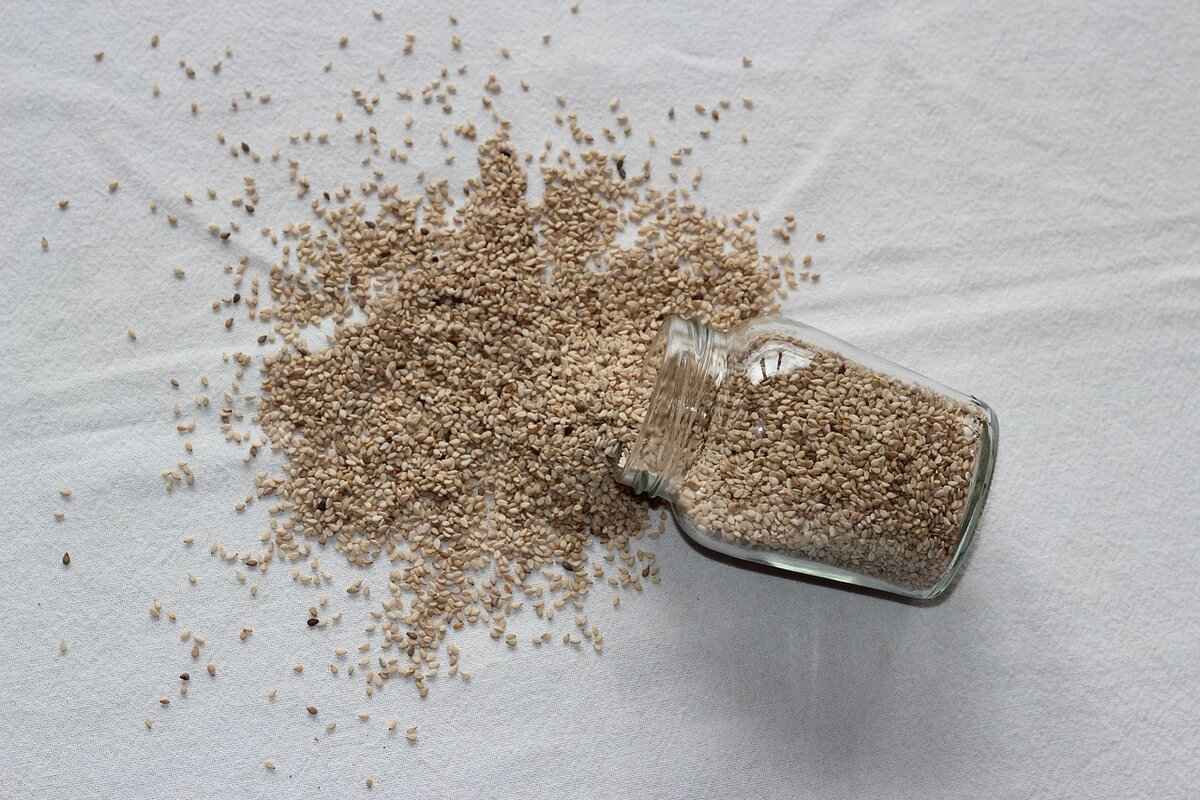
How to Incorporate Chia Seeds into Your Diet?
Chia seeds, known for their remarkable health benefits, are an excellent addition to any diet. Their versatility allows them to be incorporated into various meals, enhancing both flavor and nutritional value. Below are some creative ways to incorporate chia seeds into your daily meals.
Adding chia seeds to your smoothies is a fantastic way to increase their nutritional content. Simply blend a tablespoon of chia seeds into your favorite smoothie recipe. Not only do they provide a rich source of omega-3 fatty acids, but they also add a pleasant texture and help thicken the mixture.
Transform your morning oatmeal by stirring in chia seeds. They can absorb liquid and create a delightful, pudding-like consistency. For an added flavor boost, mix in fruits, nuts, or a drizzle of honey. This combination offers a hearty breakfast packed with fiber, protein, and essential nutrients.
Chia seeds can be seamlessly integrated into baked goods such as muffins, bread, and cookies. Substitute a portion of the flour with ground chia seeds or add whole seeds to your batter. This not only enhances the nutritional profile but also adds a unique flavor and texture to your treats.
Sprinkle chia seeds over salads for a crunchy texture and a nutrient boost. They pair well with a variety of dressings and can enhance the overall flavor of your greens. Additionally, chia seeds are a great source of antioxidants, which can help protect your body from oxidative stress.
Chia seed pudding is a popular dessert that is both healthy and satisfying. Combine chia seeds with your choice of milk (dairy or plant-based) and let them sit for a few hours or overnight. The seeds will absorb the liquid, creating a creamy, pudding-like consistency. Flavor it with vanilla, cocoa powder, or fresh fruits for a delightful treat.
Use chia seeds as a thickening agent in soups and sauces. When blended into your dish, they can help achieve the desired consistency without adding extra calories. This is particularly useful for those looking to maintain a healthy diet while still enjoying hearty meals.
Create energy bites by mixing chia seeds with oats, nut butter, and honey. Roll the mixture into small balls and refrigerate for a quick, on-the-go snack. These bites are perfect for satisfying cravings while providing a healthy dose of energy.
For a refreshing drink, try chia fresca. Simply mix chia seeds with water, lemon or lime juice, and a sweetener of your choice. This hydrating beverage is not only delicious but also provides a boost of energy and nutrients.
Incorporating chia seeds into your diet is not only easy but also beneficial for your overall health. With their ability to enhance the nutritional value of various meals, chia seeds are a remarkable superfood that can fit seamlessly into any eating plan.
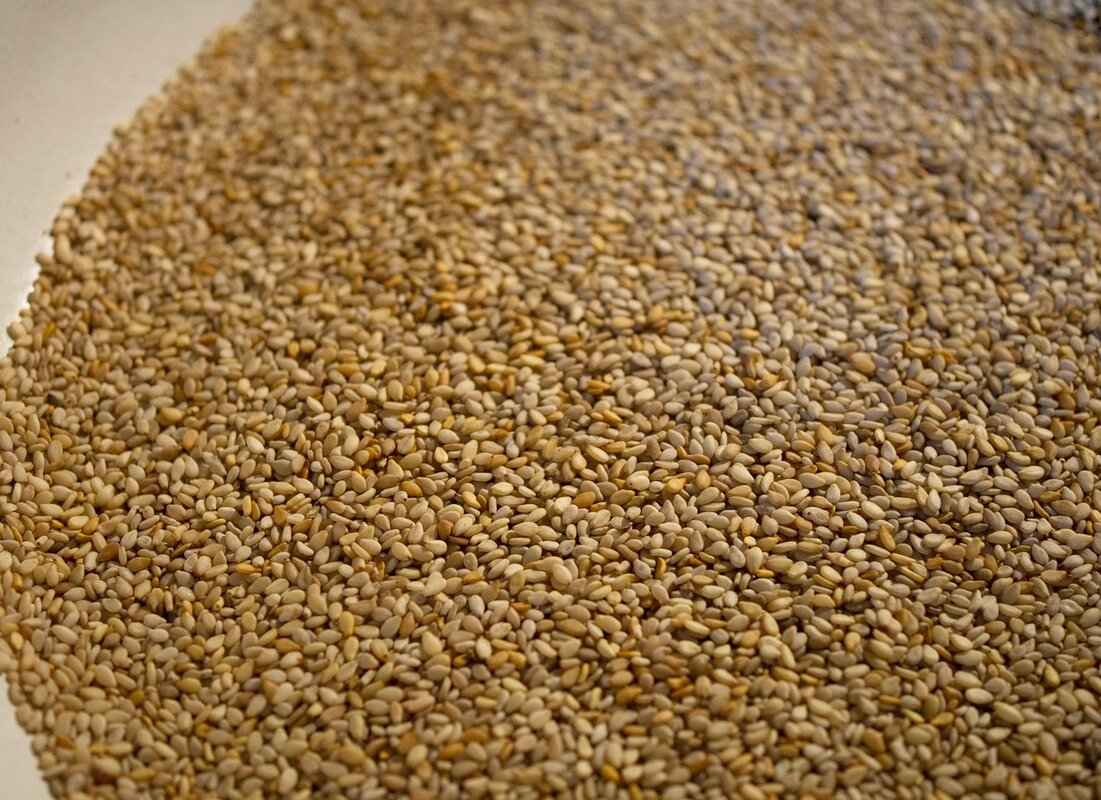
What Are the Health Benefits of Chia Seeds?
Chia seeds, often referred to as a superfood, are tiny black or white seeds that offer a plethora of health benefits. Regular consumption of these nutrient-dense seeds can significantly enhance overall health and well-being. Below, we explore the various health benefits associated with chia seeds, emphasizing their role in heart health, digestion, and weight management.
- Improved Heart Health: Chia seeds are an excellent source of omega-3 fatty acids, particularly alpha-linolenic acid (ALA). These essential fats are known to reduce inflammation, lower blood pressure, and improve cholesterol levels, contributing to a healthier heart. Studies have shown that incorporating chia seeds into your diet can lead to a decrease in triglycerides and an increase in HDL (good cholesterol).
- Enhanced Digestion: One of the most significant benefits of chia seeds is their high fiber content. With about 10 grams of fiber per ounce, they promote regular bowel movements and improve digestive health. The soluble fiber in chia seeds absorbs water and forms a gel-like substance, which aids in slowing digestion and promoting a feeling of fullness. This can prevent overeating and help maintain a healthy digestive system.
- Better Weight Management: Chia seeds can play a vital role in weight management. The combination of high fiber and protein content helps regulate appetite and reduce cravings. When consumed, chia seeds expand in the stomach, leading to increased satiety and reduced overall calorie intake. This makes them an ideal addition to meals for those looking to lose or maintain weight.
- Rich in Nutrients: Beyond omega-3s and fiber, chia seeds are packed with essential nutrients, including protein, calcium, magnesium, and antioxidants. These nutrients contribute to overall health, supporting bone strength, muscle function, and cellular health. Their antioxidant properties help combat oxidative stress and inflammation, which are linked to various chronic diseases.
- Versatile and Easy to Use: Chia seeds are incredibly versatile and can be easily incorporated into a variety of dishes. They can be added to smoothies, yogurt, oatmeal, or baked goods. Additionally, they can be used as a thickening agent in recipes, making them a convenient choice for enhancing the nutritional value of meals.
In summary, the regular consumption of chia seeds can lead to improved heart health, enhanced digestion, and better weight management, making them a valuable component of a balanced diet. Their rich nutrient profile and versatility in culinary applications make them an excellent choice for anyone looking to boost their health. As with any dietary change, it is advisable to consult with a healthcare professional, especially for individuals with specific health concerns or dietary restrictions.
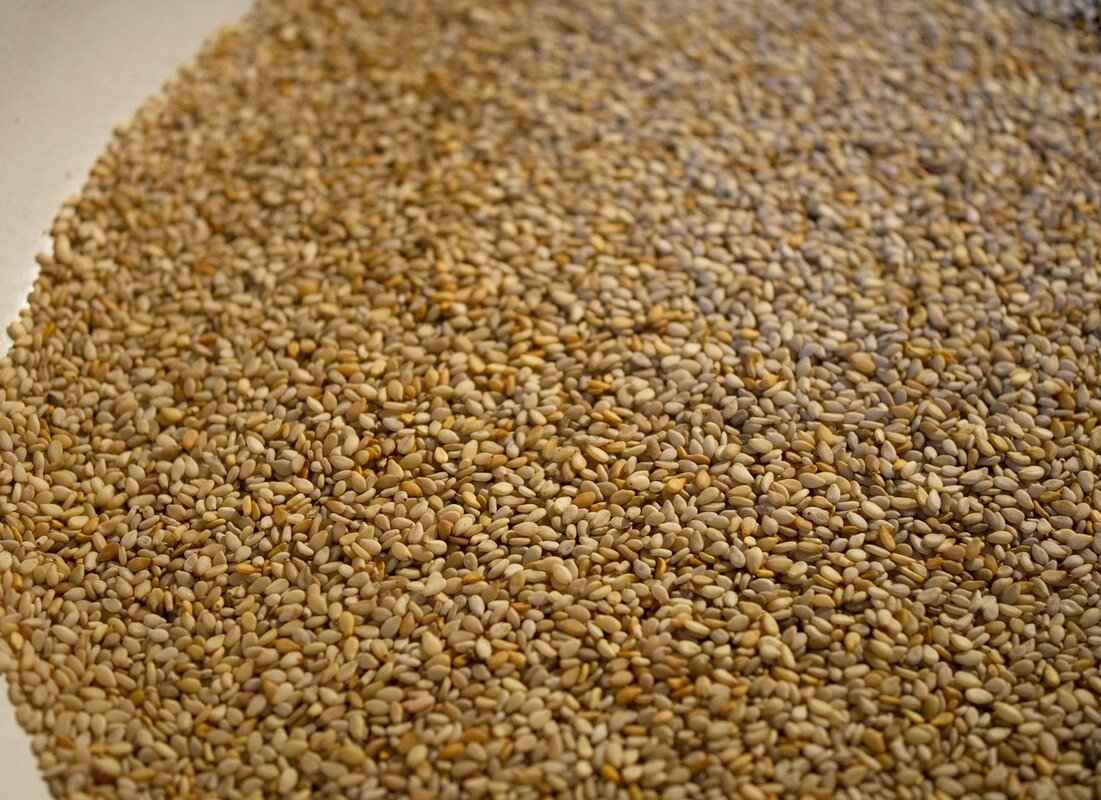
Are There Any Side Effects of Chia Seeds?
Chia seeds have gained immense popularity in recent years due to their numerous health benefits, particularly as a source of omega-3 fatty acids. However, while these tiny seeds are generally considered safe for most people, it is essential to understand that some individuals may experience side effects. This article delves into the potential side effects of chia seeds, ensuring that consumers are well-informed for safe consumption.
Chia seeds are high in fiber, which is beneficial for digestive health. However, for some individuals, particularly those who are not accustomed to a high-fiber diet, consuming chia seeds can lead to digestive discomfort. This can manifest as bloating, gas, or even constipation. It is advisable for beginners to gradually introduce chia seeds into their diet, starting with small amounts and increasing as their digestive system adjusts.
Although rare, some individuals may have an allergic reaction to chia seeds. Symptoms can include skin rashes, itching, or gastrointestinal distress. If you experience any adverse reactions after consuming chia seeds, it is crucial to discontinue use and consult a healthcare professional. Always be cautious if you have a history of food allergies.
- Hydration: Chia seeds can absorb up to 12 times their weight in water. To prevent digestive issues, it is essential to consume them with adequate fluids.
- Soaking: Soaking chia seeds before consumption can help reduce their potential side effects. This process makes them easier to digest and enhances nutrient absorption.
- Moderation: Start with a small serving size, such as one tablespoon, and gradually increase as tolerated.
Individuals with specific health conditions, such as irritable bowel syndrome (IBS) or those who are on blood-thinning medications, should consult their healthcare provider before adding chia seeds to their diet. The high fiber content can exacerbate symptoms in individuals with IBS, and chia seeds may interact with certain medications.
When purchasing chia seeds, it is advisable to choose organic and non-GMO options to ensure quality and safety. Always check for any signs of contamination or spoilage, as this can also lead to adverse health effects. Reputable brands usually provide transparent information about their sourcing and processing practices.
In summary, while chia seeds are a nutritious addition to many diets, being aware of the potential side effects is crucial for safe consumption. By understanding how to incorporate them properly and recognizing individual tolerance levels, you can enjoy the numerous health benefits that chia seeds offer without adverse effects.
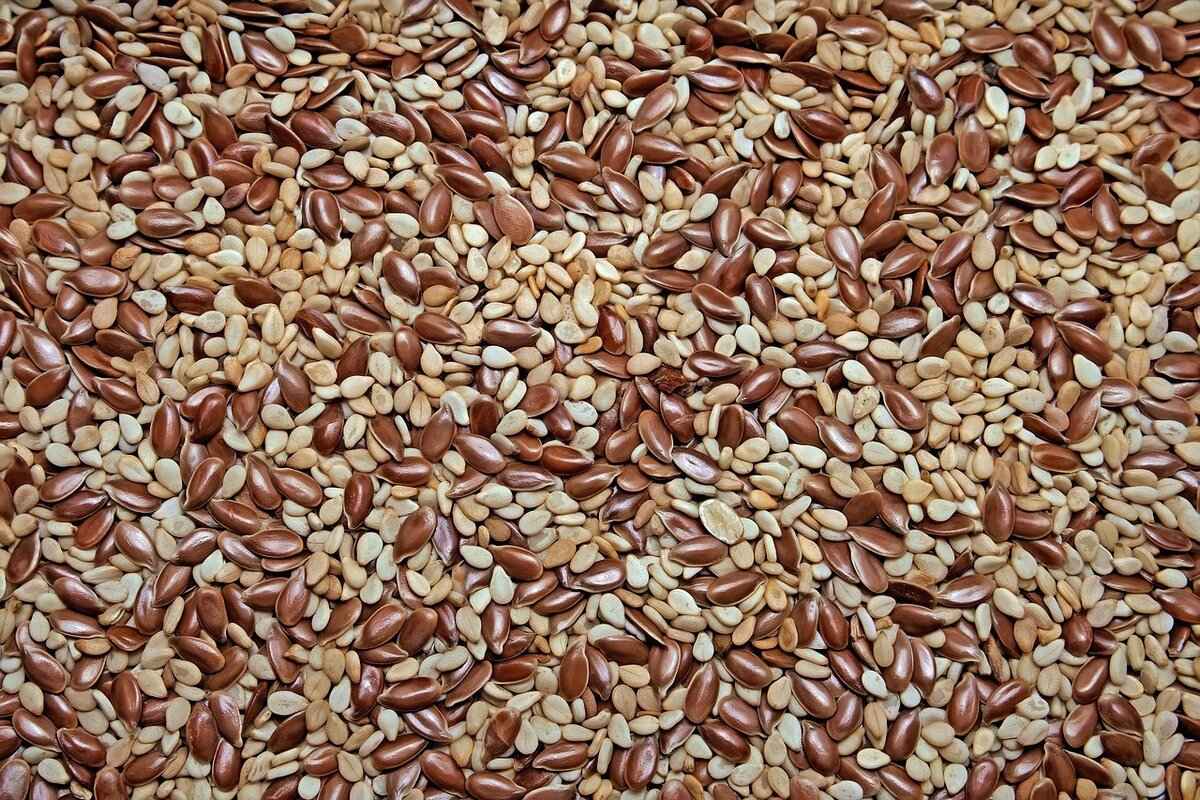
How Do Chia Seeds Support Weight Loss?
Chia seeds have gained immense popularity in the health and wellness community, particularly for their potential in aiding weight loss. These tiny seeds, packed with nutrients, offer a variety of benefits that make them a valuable addition to any weight loss plan. One of the primary reasons for their effectiveness is their high fiber content, which plays a crucial role in promoting satiety and regulating appetite.
Chia seeds are composed of approximately 34% fiber, which is significantly higher than many other foods. This fiber content is essential for creating a feeling of fullness, which can help prevent overeating. When chia seeds are consumed, they absorb water and expand in the stomach, leading to increased volume and a prolonged feeling of satiety. This natural mechanism can assist individuals in controlling their hunger and reducing caloric intake.
The soluble fiber in chia seeds forms a gel-like substance when mixed with liquid, which slows down digestion. This process helps maintain stable blood sugar levels, preventing spikes and crashes that can lead to cravings. By keeping blood sugar levels stable, chia seeds can help regulate appetite and reduce the likelihood of unhealthy snacking between meals.
In addition to their fiber content, chia seeds are rich in protein, which is another nutrient that contributes to feelings of fullness. Protein takes longer to digest compared to carbohydrates, further promoting satiety. Furthermore, chia seeds are an excellent source of omega-3 fatty acids, antioxidants, and essential minerals, making them a nutrient-dense food choice that supports overall health while aiding weight loss.
Integrating chia seeds into your diet is simple and versatile. They can be added to smoothies, yogurt, or oatmeal for breakfast, or used as a topping for salads and soups. Chia pudding, made by soaking the seeds in milk or a dairy-free alternative, is another popular way to enjoy their benefits. This not only enhances flavor but also provides a satisfying texture that can curb cravings.
For those looking to achieve long-term weight loss goals, chia seeds can be a supportive ally. Their high fiber and protein content can help create sustainable eating habits, making it easier to stick to a balanced diet. Moreover, incorporating chia seeds into meals can enhance the nutritional profile of the diet, ensuring that individuals receive essential nutrients while managing their weight.
While chia seeds are generally safe for most individuals, it is important to consume them in moderation. Due to their high fiber content, excessive intake can lead to digestive issues such as bloating or discomfort. It is advisable to start with a small amount and gradually increase consumption while ensuring adequate hydration.
In conclusion, chia seeds can be an effective tool for weight loss due to their high fiber and protein content, which promote satiety and regulate appetite. By incorporating these nutrient-dense seeds into a balanced diet, individuals can enhance their weight management efforts while enjoying a variety of health benefits.

Can Chia Seeds Be Used in Vegan and Vegetarian Diets?
Chia seeds, derived from the Salvia hispanica plant, have gained immense popularity in recent years, especially among those following vegan and vegetarian diets. These tiny seeds are not only versatile but also packed with essential nutrients, making them a staple in plant-based eating plans.
For individuals adhering to plant-based diets, obtaining sufficient omega-3 fatty acids can be challenging. Chia seeds serve as an excellent source, providing a plant-based alternative to fish oils. They are rich in alpha-linolenic acid (ALA), a type of omega-3 fatty acid that is crucial for heart health and overall well-being.
- Rich in Omega-3 Fatty Acids: A single ounce (28 grams) of chia seeds contains approximately 5 grams of omega-3s.
- High in Fiber: These seeds are loaded with fiber, promoting digestive health and aiding in weight management.
- Good Source of Protein: Chia seeds provide a complete protein source, containing all nine essential amino acids.
- Loaded with Antioxidants: They contain powerful antioxidants that help combat oxidative stress and inflammation.
- Rich in Essential Minerals: Chia seeds are a great source of calcium, magnesium, and phosphorus, which are vital for bone health.
Integrating chia seeds into your meals is both simple and enjoyable. Here are some practical ideas:
- Smoothies: Add a tablespoon of chia seeds to your favorite smoothie for an extra nutritional boost.
- Oatmeal: Stir chia seeds into your morning oatmeal for added texture and health benefits.
- Baked Goods: Incorporate chia seeds into muffins, bread, or energy bars for enhanced nutrition.
- Puddings: Create delicious chia seed puddings by soaking them in almond milk or coconut milk overnight.
While chia seeds are generally safe for most people, some may experience digestive discomfort if consumed in large quantities. It’s essential to start with small amounts and gradually increase your intake. Additionally, those with allergies to flaxseeds or sesame seeds should exercise caution.
Regular consumption of chia seeds may lead to various health benefits, including:
- Improved Heart Health: The omega-3 fatty acids in chia seeds can help lower cholesterol levels and reduce the risk of heart disease.
- Enhanced Digestive Health: The high fiber content promotes regular bowel movements and supports gut health.
- Weight Management: Chia seeds can help you feel fuller for longer, reducing overall calorie intake.
When purchasing chia seeds, look for reputable brands that offer organic and non-GMO options. Local health food stores and online retailers often have a wide selection. Always check for freshness and packaging to ensure you are getting the best quality.
In conclusion, chia seeds are a nutrient-dense addition to vegan and vegetarian diets, providing essential omega-3 fatty acids and other vital nutrients. Their versatility in various recipes makes them an easy and enjoyable way to enhance your overall health.
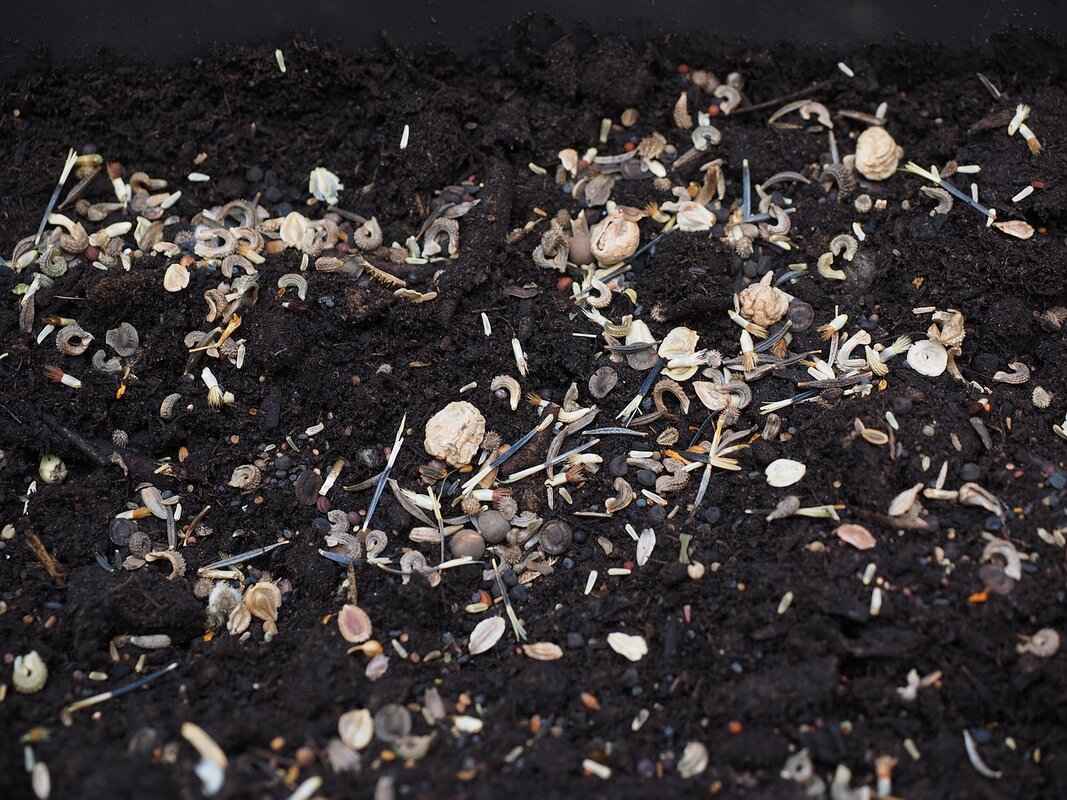
Where to Buy Quality Chia Seeds?
When it comes to incorporating chia seeds into your diet, one of the most crucial steps is knowing where to buy quality chia seeds. The market is flooded with various brands and products, making it essential to identify those that provide the best nutritional value and purity. This article will guide you in finding high-quality chia seeds, ensuring you reap the maximum health benefits they offer.
Not all chia seeds are created equal. The quality of chia seeds can significantly impact their nutritional benefits. High-quality seeds are typically fresher, richer in omega-3 fatty acids, and less likely to contain contaminants. When selecting chia seeds, look for products that are organic and non-GMO, as these labels often indicate a higher standard of quality.
There are several well-known brands that have earned a reputation for providing high-quality chia seeds. Brands like Nutiva, Navitas Organics, and Healthworks are often recommended due to their commitment to quality and transparent sourcing practices. Always check for certifications, such as USDA Organic, which can provide additional assurance of the product’s integrity.
Visiting local health food stores can be a great way to find quality chia seeds. These stores often carry products from reputable brands and may even offer bulk options, allowing you to purchase exactly the amount you need. Additionally, staff at these stores can provide valuable insights and recommendations based on your dietary needs.
For those who prefer the convenience of shopping online, numerous websites specialize in health foods and supplements. Websites like Amazons, Thrive Market, and iHerb offer a wide variety of chia seeds, often with customer reviews that can help you make an informed decision. However, ensure that the seller is reputable and check return policies in case you receive a product that does not meet your expectations.
- Organic Certification: Look for seeds that are certified organic to avoid pesticides and harmful chemicals.
- Freshness: Check the packaging date to ensure the seeds are fresh, as older seeds may have reduced nutritional value.
- Packaging: Opt for chia seeds sold in airtight packaging to maintain freshness and prevent spoilage.
- Customer Reviews: Reading reviews can provide insights into the quality and taste of the seeds.
To ensure you are purchasing quality chia seeds, consider conducting a simple water test. Place a tablespoon of chia seeds in a glass of water; if they swell and form a gel-like consistency within a few minutes, they are likely fresh. If they sink or do not absorb water well, it may indicate lower quality or age.
Investing in high-quality chia seeds can lead to numerous health benefits. These seeds are an excellent source of omega-3 fatty acids, fiber, and antioxidants, which can enhance heart health, improve digestion, and support overall well-being. By choosing quality, you ensure that your body receives the full spectrum of nutrients that chia seeds can offer.
In conclusion, finding high-quality chia seeds is essential for maximizing their health benefits. Whether you choose to explore reputable brands or visit local health stores, being informed about what to look for can make all the difference in your health journey.
Frequently Asked Questions
- What are the main health benefits of chia seeds?
Chia seeds are packed with omega-3 fatty acids, fiber, and antioxidants. Regular consumption can improve heart health, enhance digestion, and support weight management, making them a fantastic addition to your diet!
- How can I incorporate chia seeds into my meals?
You can easily add chia seeds to smoothies, oatmeal, or yogurt. They also work great in baked goods or as a thickening agent in soups and sauces. The possibilities are endless!
- Are there any side effects of consuming chia seeds?
While chia seeds are generally safe, some people may experience digestive issues if consumed in large amounts. It’s always a good idea to start with a small quantity and see how your body reacts.
- Can chia seeds replace fish oil for omega-3 intake?
Absolutely! Chia seeds are a fantastic plant-based source of omega-3 fatty acids, making them an excellent alternative for those who don’t consume fish.
- Where can I buy high-quality chia seeds?
Look for reputable brands at local health food stores or online. Always check for organic options and read reviews to ensure you’re getting the best quality!














